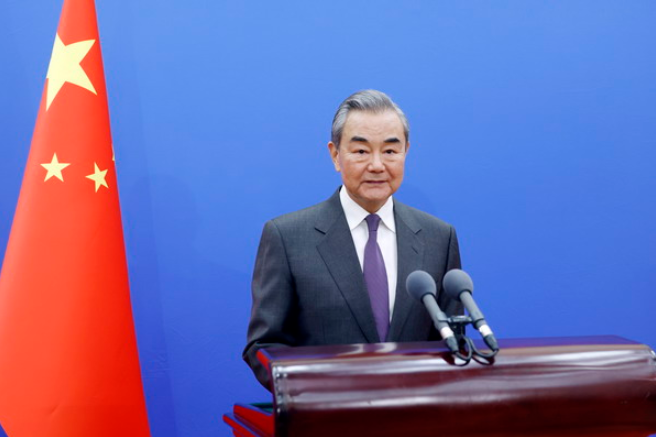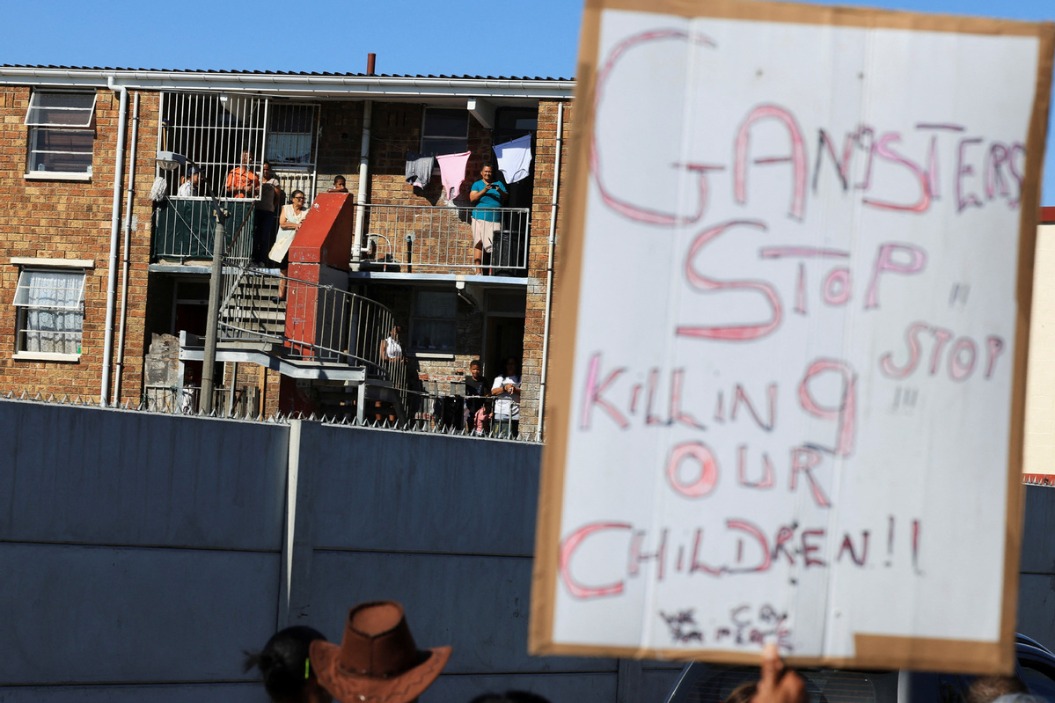Syria's future uncertain amid power struggles
Chaos:Uncertainty reveals fragile, volatile nature of Syria’s transition


Early signs of some stability and progress in Syria have sparked cautious optimism among observers. However, experts continue to be wary about the country's uncertain future, and the potential regional and global ramifications of its trajectory.
In a notable development, a coalition of rebel groups appointed Mohammed al-Bashir as the head of an interim government tasked with governing Syria until March 1. Bashir has pledged to establish representative governance and promote religious tolerance.
Bashir said he will bring back millions of Syrian refugees, who were forced to flee their homes during the country's 13-year civil war.
"The country is moving toward development and reconstruction," said Abu Mohammed al-Jolani, leader of the main insurgent force, Hayat Tahrir al-Sham, in an interview with Sky News. "It's going toward stability."
In another sign of easing tensions, the US-backed Kurdish forces and Turkiye-backed Syrian rebels agreed on a ceasefire, mediated by the United States, in the northern city of Manbij on Wednesday.
While these developments suggest progress, the road ahead for Syria remains fraught with challenges and complexities.
Fragile, complex reality
Analysts cautioned that Syria's precarious situation leaves little hope for a swift resolution to issues and return to normalcy. They highlighted the risks of sectarian violence, internal power struggles within the rebel coalition, and the resurgence of extremist groups like ISIS.
Syria's political future remains deeply uncertain. HTS, the dominant force in the rebel coalition, is working to consolidate its control, while exiled political leaders are beginning to return.
The country's diverse population — Sunni Muslims, Shia Alawites, Christians, Kurds, and Palestinian factions — remains divided along ethnic and sectarian lines. Historically, these groups have often been in conflict. Additionally, Palestinian factions such as Fatah, the Popular Front for the Liberation of Palestine, and the Palestinian Islamic Jihad have maintained a presence in Syria as guests of the government for decades.
The rebel coalition currently governing much of Syria is led by HTS, which is designated a terrorist organization by both the United States and the United Nations.
Niu Xinchun, a professor at Ningxia University's China-Arab Research Institute, warned of the devastating consequences if power transition is not peaceful. "If Syria fails to establish a stable and efficient central government, it could plunge back into a larger-scale civil war, resulting in immense suffering for its people," Niu said.
While a smooth regime transition would be the ideal outcome, according to Niu, "the likelihood of such a scenario is very low. Syria is highly likely to remain unstable and turbulent".
Syria's economy is in shambles, marked by widespread unemployment and lack of basic services. The newly formed transitional government faces enormous challenges in addressing these issues, particularly with international sanctions still in place.
Meanwhile, in a bid to consolidate power, HTS has informed Palestinian factions in Syria that they are no longer permitted to maintain weapons, training camps or military headquarters, according to Arabic media reports.
Reports of public executions of former government officials have also been coming in.
Foreign stakeholders
Zhao Beiping, deputy director of the Center for Middle East Studies at Shandong Normal University, emphasized the ongoing uncertainty in Syria, highlighting that the major powers supporting various factions will play a pivotal role in shaping the country's future.
"(Former Syrian president) Bashar al-Assad's collapse will inevitably alter the geopolitical map of the region," Zhao said. "Regional stakeholders are actively trying to influence the developments in Syria to align with their political interests."
Israel, in particular, appears to be capitalizing on the situation. Israeli Prime Minister Benjamin Netanyahu recently ordered his troops to swiftly seize the demilitarized buffer zone that separated Israel from Syria since the 1974 disengagement agreement. Netanyahu's office stated that troops would remain slightly beyond the buffer zone for "strategic reasons".
The Israel Defense Forces announced on Thursday that it had "severely damaged" Syria's air defenses, destroying over 90 percent of identified strategic surface-to-air missile systems.
UN experts have strongly condemned Israel's extensive military operations in Syria, asserting that these actions constitute serious violations of international law.
Zhao Jun, an associate researcher at Shanghai International Studies University's Middle East Studies Institute, noted that the situation in Syria will trigger a new round of competition among international and regional stakeholders, each vying for influence and control over the country's future.
Turkiye, Iran, Russia and the US have vested interests in Syria, but their competing agendas create significant barriers to coordinated action, Zhao said.
Earlier this year, Gulf states took a step toward normalizing relations with Damascus, leading to Syria's readmission to the Arab League. Shamiran Mako, an assistant professor of international relations at Boston University's Frederick S. Pardee School of Global Studies, said that key Arab states will play a significant role in Syria's transition, with the aim of safeguarding their own interests while containing potential Islamist threats.
In his first address following the ousting of Assad, Iran's Supreme Leader Ayatollah Ali Khamenei harshly criticized the US and Israel, accusing them of orchestrating the downfall of one of Teheran's key allies.
Assad's collapse represents a significant blow to Iran's "Shia Crescent", a geopolitical alliance that once spanned from western Afghanistan to the Mediterranean. Syria, at the heart of this corridor, was crucial for Teheran's ability to arm Hezbollah and project influence in Lebanon and across the Levant. With Syria's shift, Teheran now faces heightened regional vulnerability and a diminished strategic foothold, analysts noted.
Russia's military intervention in 2015 was pivotal in saving the Assad government from collapse, securing key air and naval bases in Tartus and Khmeimim, and solidifying Moscow's presence in the Eastern Mediterranean. From Syria, Russia has extended its influence into Libya, the Sahel and beyond, strengthening its broader Middle East and Africa strategy.
On Thursday, Russian Deputy Foreign Minister Mikhail Bogdanov confirmed that Moscow had established direct contacts with HTS and expressed the intent to maintain its military bases in Syria, citing the continued need to "fight international terrorism", according to Interfax.
Meanwhile, US Secretary of State Antony Blinken visited Turkiye, Iraq and Jordan between Wednesday and Saturday to discuss Syria, signaling ongoing diplomatic efforts to navigate the region's shifting dynamics. He said in Jordan on Saturday that US officials also have been in direct contact with HTS.
US involvement in Syria began in 2011, following the Arab Spring's spread to the country. Diplomatic ties between the US and Syria were severed in 2012.
In recent days, the US has conducted a series of strikes on "ISIS targets", citing the need to prevent ISIS from gaining ground after the collapse of the Assad government. The US currently maintains about 900 troops in northeast Syria as part of its efforts to combat ISIS. The future of the US presence in the region remains uncertain, especially with President-elect Donald Trump's stance that the US should "not get involved" in Syria.
Turkiye takes itself as the most important player in shaping new Syria's political landscape as it has troops there and stands behind some rebel forces, Niu Xinchun of Ningxia University said.
Turkiye's Foreign Minister Hakan Fidan stated on Friday that his country's "strategic goal" is to eliminate the Syrian Kurdish forces, which are supported by the US.
Experts have warned that as various armed groups vie for power and foreign stakeholders attempt to shape Syria's future, the country could descend into domestic chaos akin to what followed the ousting of Moammar Gaddafi in Libya or Saddam Hussein in Iraq. This uncertainty underscores the fragile and volatile nature of Syria's transition.
































